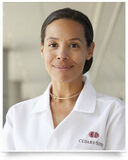Special Technology Update: “When Will Open Heart Valve Surgery Be A Bygone Era?” With Dr. Eric Roselli
By Adam Pick on March 21, 2011
With all the exciting possibilities of transcatheter heart valve therapy, my inbox is overflowing with questions about the CoreValve, the Sapien and the MitraClip. For example, Dorothy sent me a question that reads, “Given all the advancements in certain treatments… Can you estimate a time when open heart valve replacement surgery will be part of a bygone era?”
I wanted to get Dorothy the best possible answer to this question. So, I met with Dr. Eric Roselli, staff surgeon from The Cleveland Clinic, to obtain his clinical opinions. Dr. Roselli is actively using transcatheter heart valves replacement therapies in his practice. In fact, Dr. Roselli is so knowledgeable with the percutaneous technologies shaping heart valve treatment, he was named the TechCon Co-Chairman at the annual Society of Thoracic Surgeons meeting.
I hope this helped you learn more about transcatheter heart valve therapies and their potential, future utility for patients suffering from valvular defects. Thanks to Dorothy for her excellent question. And, thanks to Dr. Roselli for sharing his time, expertise and ideas with our community!
For those of you in our patient and caregiver community who are hearing impaired, I have provided a transcript of Dr. Roselli’s interview below.
Adam: Hi, everbody. It’s Adam and I’m here at STS in San Diego at the 47th annual event, and we’re answering your questions that you posted up at HeartValveBlog.com and very excited to be having with me Dr. Roselli from the Cleveland Clinic who is going to be talking today and answering a question all about the latest technology specific to transcatheter valve treatment and the question comes in from Dorothy and Dorothy writes, “Given the advance in certain treatments like the CoreValve and the Edwards SAPIEN valve, can you estimate the time from when open heart valve surgery will be part of a by-gone era?”
Doctor Roselli: Thanks for the question, Dorothy. It’s a tough one, but I think an excellent question because for years I think that there’s been a lot of discussion about small incremental improvements in valve technology and in the last couple of years, we’ve seen this really exciting explosion in development of valves from slightly better biologic valves to an entirely new way of delivering them. But I think it’s important to understand that this new technology is not a replacement that should be compared directly against standard therapies. In fact, none of them have a therapy that, I think, should be compared as competitive. They should be looked at as additional tools in our toolbox to treat a complex disease which we don’t understand perfectly well enough to deliver the ideal treatment. I’m a surgeon. But, I’d be happy if we never had to operate on people. In fact, if we never had to give people pain or suffering in any way at all and we could cure them, that’s the by-gone era we’re looking for. But, I think that when we get to a point where we understand aortic diseases, whether it’s congenital diseases like bicuspid valves or other congenitally aortic stenosis or aortic insufficiency problems or degenerative valve disease, to the point where we can predict when it’s going to happen and how it’s going to happen at a biologic level, we’ll treat it without a mechanical fix. That’s when aortic valve replacement as we know it will be a by-gone era. It sounds like I’m talking around the question. But, I think it’s totally realistic to think that if you look at where we’ve come in the last 100 years when Dr. Osler, who is probably still the most quoted physician in history, talked about operating on the heart as malpractice, totally something that could never be achieved, to today when we’re talking about delivering aortic valves through a small puncture wound in your groin, it’s not inconceivable to think that in our lifetime that we may be able to, you know, deliver patient directed therapies to slow or eliminate the degenerative processes that are happening in valves. But, probably for, you know, a good generation or so, we’re going to see all of these various valve therapies be complimentary to one each other and so that’s it’s not one valve fits everybody with any kind of aortic valve disease but a different valve for a different patient for a different process and so we’re going to see more of these lesser invasive heart valve replacements, for example like the ones you’ve described, but newer valves that are coming out that are not, you know, delivered from a puncture wound in the groin but we don’t have to suture them in place. So, you know, because that they offer an advantage in somebody like yourself, if you don’t mind me describing it, that, you know, whose valve needed to be taken out but could be delivered through a tiny incision where we can remove the valve instead of having to suture it in place. It’s what’s called a sutureless or a self-fixing valve. Those valves exist and they’re already going in patients in Europe and so they add a whole another tool to treat valve therapy. So, what’s the question again? Can I estimate the time? Probably in the next couple of generations, around that time, at least the time that’s imaginable. But, no time soon and that’s okay.
Adam: So, this is why you were the co-chairman of TechCon and you’ve got a lot of insight into all this new technology and how you’re working with it actually today, though, in your practice, correct?
Eric Roselli, MD: Absolutely.
Adam: And part of the whole trials that are going on, and on behalf of all the patients out there and the caregivers, as well, I just want to thank you for what you’re doing. You’re pursuit of healthy hearts, healthy heart valves as well, is to be commended and acknowledged. And, I just want to thank you because you’ve been a great supporter of our site and without you and your expertise — It’s a great community and you’ve helped build it everyday so thank you so much for your help.
Dr. Eric Roselli: Thanks, Adam, and keep that camera rolling. Thanks to you, too, because I’ve known you for many, many years before I was a doctor and I’m proud of what you do everyday with this site. It’s awesome. I mean you help people everyday. I’m proud of you.
Adam: Keep the camera rolling. I’m proud of you, too.
Eric Roselli, MD: There’s a lot of love in the air. I love this guy.
To learn more about Dr. Roselli, please click here.
Keep on tickin!
Adam
|
Kerrigan says on March 22nd, 2011 at 12:35 pm |
|
The cardio surgeon who recommended my aortic valve replacement said “better to open it up and let them have the room to do it right.” Hope that changes for future patients; it was a major event in the least. |
 |
|
Fran Zilko says on March 23rd, 2011 at 3:23 pm |
|
Is there any information of when mitral valve surgery will be done via trans catheter. Specifically mitral valve replacement? Seems like all the info I read about only involves the aortic valve. |
 |











